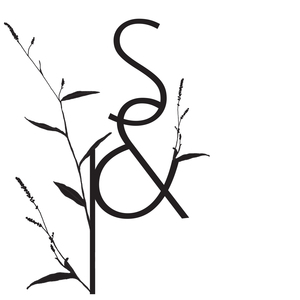On a chilled morning in late fall, The Goat Farm in Atlanta feels deserted. Twisted vines climb old brick walls and the only sign of life is the droplets that coat windowpanes, hinting that some warmth dwells inside. Stepping through a white unmarked entryway, a metal cage reveals itself. Eight students stand alert at their anvils, watching the instructor etch in chalk the details of today’s lesson.
Mark Hopper is teaching a beginner’s metalsmithing class this morning. It’s part three of a campfire cookery series offered by The Homestead Atlanta, a roving hub for affordable workshops that explore practical sustainability and forgotten heritage skills.
Kimberly Coburn started The Homestead Atlanta in early 2013 with the goal of creating a network of skill-based experts and a community of people eager to reconnect with their hands.
“I don’t have a background in any of this. I just love it all,” Coburn says. “Part of the reason I started this is because I wanted access to it.”
Classes are available in a range of subjects from knitting to foraging and aromatherapy to rainwater harvesting. The diversity keeps it interesting, and the level of knowledge required to sign up for any class is zero.
“One of the biggest things all of these [programs] are about is reintroducing people to their capacity for creation,” Kimberly says. “Our birthright as humans is the ability to create and be problem solvers and make things that get us by. Reminding people that they can be producers instead of just consumers is key.”
Jessica Collins is a student and an assistant to Mark Hopper at the GoatnHammer metalsmithing shop. She’s seen that moment of change in people that Kimberly hopes to cultivate — she watches participants realize they can do something now that they couldn’t do before, and it’s powerful.
“Did everyone get that down in one heat?” Hopper asks as his students hammer with speed and deliberation, hoping to make the next curve before the iron cools. “That’s okay. You’re using caution. Saturday morning and the coffee hasn’t kicked in.”
For all the hammering clamor, this kind of work requires finesse. Intentional force and a delicate aim are required to succeed in the process of bending and shaping metal.
“Be sympathetic to the form you are creating,” Hopper urges. It’s critical to follow the line of the anvil.
Coburn seeks out experts like Mark Hopper to teach the wide range of classes she offers. She also seeks to connect future apprentices to their teachers.
Hopper stands tall in steel-toed brown leather boots. His pants are held up by black suspenders coupled with a belt fastened by an anvil-etched brass buckle. In his pockets are a blue kerchief for sweat and a knife in holster, around his neck an intricate silver choker. The details give tell to a deep respect for metal.
Hopper never succeeded in school, so when he was 15, he decided to start travelling the world. He apprenticed with blacksmiths across the globe, only to return to Atlanta seeking the purpose and the community he would later establish at The Goat Farm.
Hopper and Collins became acquainted while pursuing separate passions at The Goat Farm. One day Hopper came to her with a revelation.
“I think I found my life’s work and that’s to develop a very concise and lineated curriculum for blacksmithing,” Hopper says.
The GoatnHammer launched about 3 years ago. The curriculum Hopper offers in collaboration with The Homestead Atlanta takes a less precision-oriented, more object-oriented approach to metalsmithing. Fittingly, it’s more the approach of an agriculture-smith, one who makes only the objects he needs on the field to get by.
“Only 40 to 50 percent [of students] had swung a hammer with intent before,” he says. The students are most often people who work in offices, not carpenters and builders.
“It’s people who don’t get a lot of time to work with their hands. I think that working with our hands is something that humans really have to do,” says Collins. “They crave it. They need it. And this is an outlet for that.”
One older student came to the class because his father and grandfather were both trained blacksmiths that had to become house painters instead to support themselves. They encouraged him to do something else, so he became a professor of math and statistics. Now he finds himself drawn back into the work of his elders.
Another student’s wife encouraged him to take the metalsmithing course after she attended weaving courses offered by The Homestead Atlanta.
“I kind of joke that I’m brainwashing people one craft at a time,” Coburn says.
Creating a community based in cultivating human skills is the goal The Homestead Atlanta hopes to achieve.
“I want to make sure that people don’t think this is nostalgic, you know, or backwards looking. Just because something was done two hundred years ago doesn't mean it’s any less relevant today. There’s that element of trying to protect those [practices] from being lost because people don’t have to do them anymore,” Coburn says. “[These skills] are going to move us all into a more sustainable future.”





